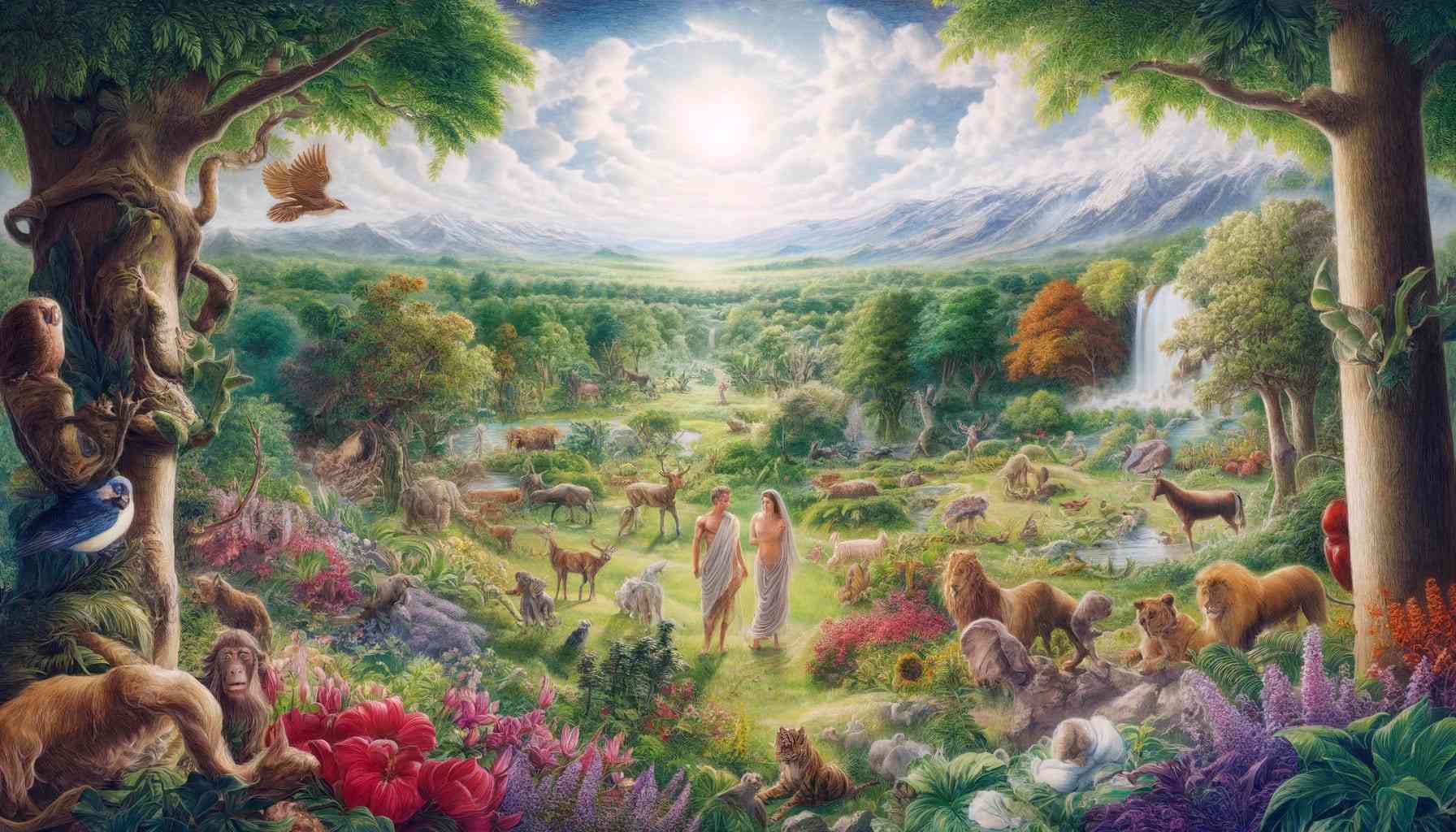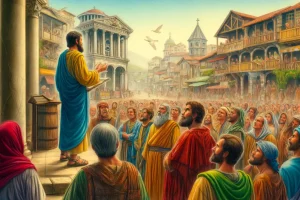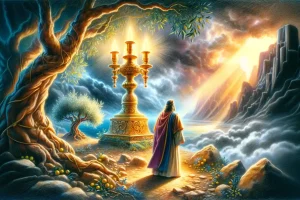
The Book of Genesis
The Book of Genesis is the first book of the Bible and serves as the foundation for both the Hebrew Bible and the Christian Old Testament. Here are some quick facts about Genesis:
- Name Origin: The name “Genesis” comes from the Greek word for “origin” or “beginning,” reflecting its content about the creation of the world and the origins of the Hebrew people.
- Authorship: Traditionally attributed to Moses, though modern scholars often discuss the Documentary Hypothesis, which suggests multiple authors over several centuries.
- Structure: Genesis consists of 50 chapters, divided into two main parts: the Primeval History (chapters 1-11) and the Patriarchal History (chapters 12-50).
- Key Themes:
- Creation: It includes accounts of the creation of the world, Adam and Eve, and the introduction of sin into human history.
- Covenant: The notion of covenant is central, first with Noah, and more elaborately with Abraham, Isaac, and Jacob.
- Promise and Blessing: Promises made to the patriarchs about land, descendants, and blessings that have far-reaching theological implications.
- Major Characters: Adam, Eve, Noah, Abraham, Sarah, Isaac, Rebekah, Jacob, Joseph, and many others who are foundational to the genealogy and story of Israel.
- Notable Stories:
- The Fall of Man: The story of how sin entered humanity through the actions of Adam and Eve in the Garden of Eden.
- The Flood: The narrative of Noah and the ark, detailing the catastrophic flood sent by God.
- The Tower of Babel: Explains the diversity of languages and the dispersal of peoples across the Earth.
- The Stories of the Patriarchs: Chronicles the lives, trials, and blessings of the patriarchs Abraham, Isaac, and Jacob, and the beginnings of the 12 tribes of Israel.
- Purpose and Influence: Genesis sets the stage for the biblical story of redemption, beginning with creation and moving into the formation of God’s chosen people, Israel. It addresses profound questions about God, humanity, evil, suffering, and the nature of faith.
The Book of Genesis, as the inaugural text of the Bible, sets the theological and narrative foundation for both Judaism and Christianity. It covers from the origins of the cosmos to the dawn of Hebrew nationhood, presenting profound themes and complex characters whose stories offer insights into human nature, divine purpose, and the intricate relationship between God and His creation. Here’s a comprehensive analysis of Genesis:
Literary Structure and Composition
Genesis is traditionally divided into two main sections:
- Primeval History (Chapters 1-11): This section includes the creation narratives, the Fall, the story of Cain and Abel, the Flood, and the Tower of Babel. It deals with universal themes and is characterized by a more mythical style of storytelling.
- Patriarchal History (Chapters 12-50): This section focuses on the narratives of Abraham, Isaac, Jacob, and Joseph, providing a more historical and personal account of God’s dealings with the patriarchs of Israel.
These narratives are woven together by genealogies that not only serve to link stories and maintain chronological and theological continuity but also to reinforce key themes such as promise and fulfillment.
Key Themes
Creation and Order: Genesis starts with the majestic narrative of creation, presenting a God who brings order out of chaos and proclaims His creation good. This theme challenges other ancient Near Eastern creation myths, asserting monotheism and the sovereignty of God.
Covenant: Central to Genesis is the theme of covenant, initiated with Noah and significantly expanded with Abraham. This covenant involves divine promises that include land, descendants, and blessing. The covenant is based on divine grace and requires human faithfulness.
Fall and Redemption: The narrative of the fall in Genesis 3 introduces sin into the human story, explaining the origin of suffering and evil. Yet, even here, the text hints at redemption, notably through the promise of a future offspring who will defeat evil (Genesis 3:15), laying an early foundation for messianic hope.
The Sovereignty of God and Human Agency: Genesis portrays God as sovereign over all creation, guiding and directing history according to His divine plan. However, human agency and moral responsibility are also prominent, as seen in the lives of the patriarchs who frequently act in ways that intersect both positively and negatively with God’s plans.
Major Characters and Theological Insights
- Adam and Eve reveal the dignity and fallibility of humanity, showing both the imago Dei (image of God) and the brokenness introduced by sin.
- Noah represents obedience in the midst of a corrupt world, and the narrative centers on renewal and divine judgment but tempered with mercy.
- Abraham, the father of faith, exemplifies the theme of trust in God’s promises despite numerous challenges and the seeming improbability of God’s promises being fulfilled.
- Jacob shows the complex dealings of God with a deeply flawed individual, transforming him into a vessel for His purposes.
- Joseph‘s story closes Genesis with themes of providence, forgiveness, and the effectiveness of God’s plans despite human intentions.
Conclusion
The Book of Genesis serves multiple functions: it is a theological manifesto declaring the nature of God and His relationship to the world; it is a foundation for understanding the origin of Israel and its chosen status; and it sets forth essential moral and spiritual truths that resonate throughout the rest of Scripture. Its narratives encourage faith in God’s ultimate sovereignty and goodness, highlighting both the frailties and potential of human nature.
Understanding Genesis is crucial for a comprehensive grasp of biblical theology, providing not only historical insights but also timeless principles concerning faith, ethics, and the human condition.



